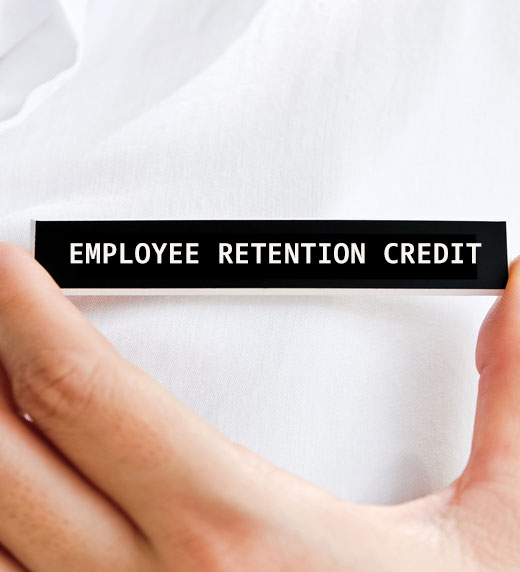
Employment laws in California can be a moving target. If you’re an employer in the Golden State, here’s a recap of key regulatory updates you should know, plus practical actions you can take to get ahead of compliance.
Who – Most California employers
What – Senate Bill 553 Cal/OSHA Workplace Violence Prevention for General Industry (Non-Healthcare Settings) requires most California employers to have a comprehensive Workplace Violence Prevention Policy (WVPP) as part of their Cal/OSHA Injury and Illness Prevention Plan (IIPP). Employers must implement an effective WVPP and complete employee training by July 1, 2024.
The WVPP can be a standalone plan or it can expand an already required IIPP to include measures for identifying, evaluating, addressing and correcting workplace violence hazards. Employers must establish, implement and maintain a written WVPP, provide regular staff training on workplace violence hazards, and keep detailed documentation records of workplace violence incidents, evaluations and corrective actions for a minimum of five years.
Exemptions from SB 553
SB 553 applies to all California employers and employers based in other states with employees working in California, with these exceptions:
Definition of workplace violence
Workplace violence is defined as any act of violence or threat of violence that occurs in a place of employment. It can include the threat or use of physical force against an employee that results in or is likely to result in injury, psychological trauma or stress. An employee’s injury is not required to be considered workplace violence.
Cal/OSHA Labor Code 6401.9 also defines workplace violence as an incident that involves a threat or use of a firearm or other dangerous weapon and includes the use of a common object as a weapon. Even if an employee is not injured in this case, this is a reportable incident. Workplace violence does not include lawful acts of self-defense or defense of others.
WVPP employee training requirements
SB 553 requires regular employee training so that staff know the procedure to follow if they experience a violent incident in the workplace. The training must cover all required components of the plan itself. It must also be conducted by someone familiar with the WVPP who can answer questions during the interactive training session. Training must be done every time a new workplace hazard is identified or an incident occurs.
Injury and Illness Prevention Plan (IIPP) requirements
Like the WVPP, the IIPP is a formal federal OSHA and California employer program intended to identify workplace hazards and provide employees with the procedures to follow should an injury or illness occur. Every U.S. employer needs a safety plan per federal OSHA standards. However, California requires employers with more than 10 employees to have a written plan to give to employees upon written request. IIPP training is required each time a new employee is hired, any time a procedure or workplace change occurs, any time a new hazard is identified and on a routine basis.
Who – All California employers
What – Effective January 1, 2024, employers are prohibited from discriminating against an employee or job applicant based on the person’s use of cannabis off the job and away from the workplace.
Employers may still conduct preemployment drug testing and refuse to hire someone based on a valid preemployment drug screening that doesn’t screen for non-psychoactive cannabis metabolites.
The new law also doesn’t permit an employee to possess, be impaired by or use cannabis on the job, or affect the rights or obligations of an employer to maintain a drug- and alcohol-free workplace.
What you should do
Who – All California employers with five or more employees
What – Effective January 1, 2023, Assembly Bill 1949 requires employers to grant employees five days of unpaid bereavement leave (that need not be taken consecutively) for the death of a family member, including a spouse, child, parent, sibling, grandparent, grandchild, domestic partner or parent-in-law.
Bereavement leave can be unpaid, but employees can use any existing PTO, vacation or sick time while on bereavement leave and employers can request documentation of the death of the family member.
What you should do
Who – All California employers with five or more employees
What – Effective January 1, 2023, Assembly Bill 1041 expands employee California Family Rights Act (CFRA) and paid sick leave rights to allow an employee to take such leave to care for a "designated person," in addition to other family members previously specified by law. “Designated person” means any individual related by blood or whose association with the employee is the equivalent of a family relationship. The designated person may be identified by the employee at the time the employee requests the leave. An employer may limit an employee to one designated person per 12-month period for family care and medical leave.
What you should do
Who – All California employers
What – Minimum wage increase and exempt salary increase, effective January 1, 2023
Statewide Minimum Wage
California’s minimum wage for all employers regardless of size increased to $15.50 per hour.
Exempt Employee Minimum Salaries
The minimum salary threshold for exempt employees increased to $1,240 per week ($64,480 per year) for employers regardless of their employee count.
The minimum hourly rate for exempt computer software employees will increase to $53.80 per hour (or an annual salary of $112,065.20).
Local Minimum Wages
The hourly minimum wage also increased within individual cities in California — for example, West Hollywood has three minimum wage requirements:
What you should do
Who – All California employers
What – There are several bills enacted:
What you should do
Who – All California employers
What – Effective January 1, 2023, Senate Bill 1044 protects employees from retaliation for refusing to work in "emergency conditions." Employees will be entitled to leave work or not come in during emergency conditions if they have a reasonable belief that the workplace is unsafe. You can require employees to provide notice in advance when feasible or, if advance notice isn’t feasible, as soon as possible. This new law specifically entitles employees to use their cell phones or other devices to get emergency assistance, communicate with someone to make sure they’re safe, or assess the safety of a situation during an emergency condition.
An emergency condition means either:
A health pandemic does not qualify as an emergency condition.
What you should do
Who – All California employers
What – Effective January 1, 2023, Assembly Bill 523 makes it unlawful to discriminate against an employee or job applicant based on their “reproductive health decision-making.”
Reproductive health decision-making includes, but is not limited to, a decision to use or access a particular drug, device, product or medical service for reproductive health.
What you should do
Who – All California employers
What – Effective January 1, 2022, Senate Bill 657 provides that in any instance in which an employer is required to physically post information, the employer may also distribute that information to employees by email with the document or documents attached.
What you should do
Who – California employers, with numerous exceptions
What – Effective September 4, 2020, AB 2257 is a clean-up measure for AB 5 that maintains its essential framework for classifying workers (the ABC test) but also revises and clarifies the legislation and expands the list of exempt occupations:
There are now more than 50 businesses and exceptions that have exemptions (providing criteria are met). Some make sense, and others do not. Know your industry and refer to the text of the law when making an interpretation. Even when a business may qualify for an exemption, the worker must clearly exhibit independence and expertise.
ABC test
AB 5, which took effect on January 1, 2020, created the ABC test for determining whether a worker is an employee or an independent contractor. To qualify as an independent contractor, a worker must meet all three criteria.:
What you should do
Basically, everyone should be considered an employee unless you can rebut this premise using all three factors in the ABC test. Follow this decision tree:
California’s employer law changes never end, so regulatory compliance is always a shifting target. This can make it a real challenge to stay up to date on your own. Find out how offloading that burden to our Human Resources Outsourcing experts can help you avoid unnecessary stress and penalties and be ready for what’s next.


